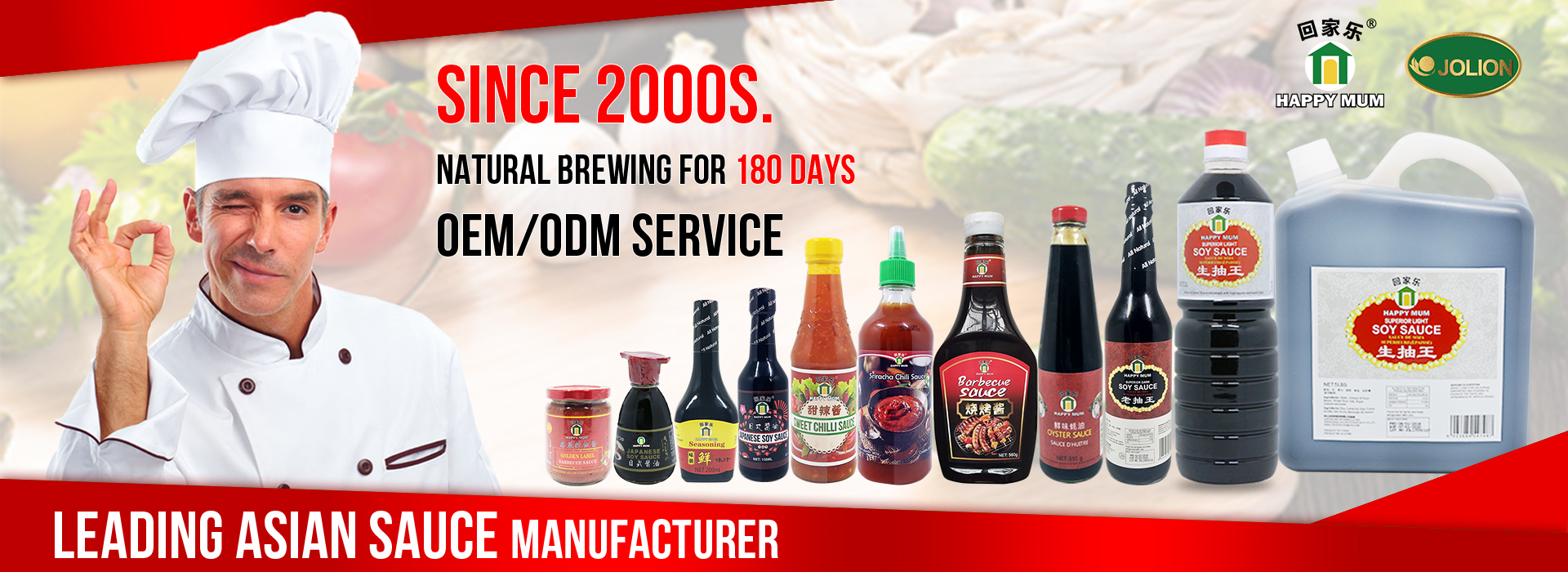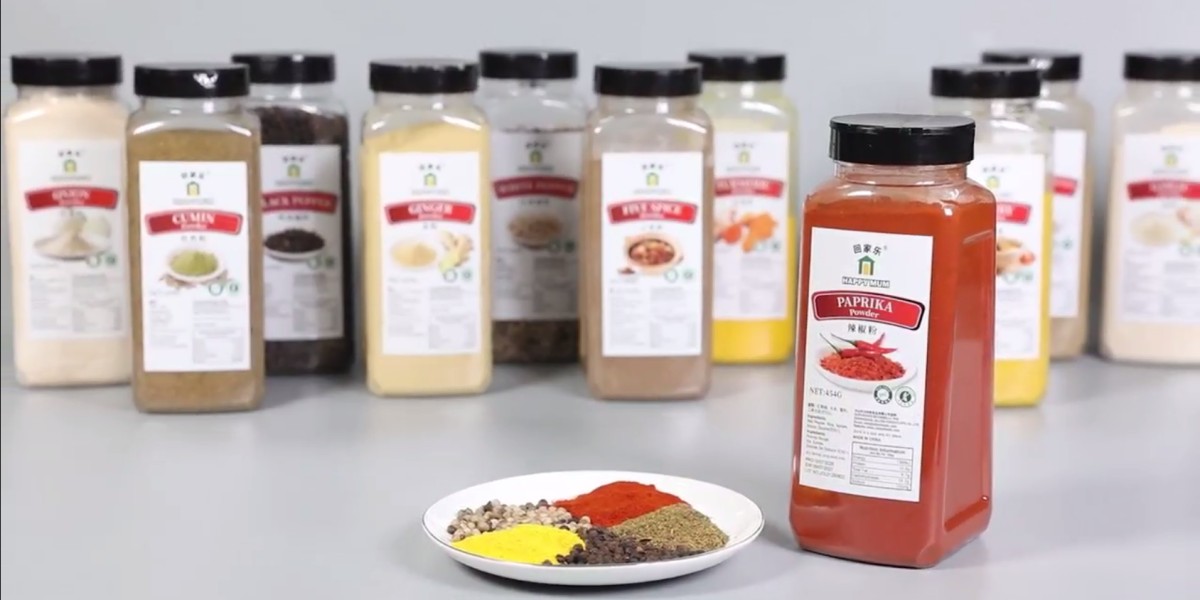
- Can I Put Sesame Oil on My Face?2026-02-04As the search for natural skincare solutions continues, many people are asking, "Can I put sesame oil on my face?" Sesame oil, derived from pure, selected sesame seeds, has been a staple in Asian cuisines for its rich flavor and health benefits.
- Can I Put Sesame Oil in Ramen?2026-02-04As culinary experimentation becomes more popular, many home cooks and chefs wonder, "Can I put sesame oil in ramen?" Sesame oil is a flavorful ingredient known for its rich, nutty taste, making it an excellent addition to many dishes.
- Can Diabetics Eat Sesame Oil?2026-02-04As health-conscious choices become increasingly important, many people wonder, "Can diabetics eat sesame oil?" Sesame oil has been a staple in various culinary traditions, especially in Asian cuisines, known for its rich flavor and numerous health benefits.
Chili Powder: Crafting, Usage, and Custom Spices & Sauces Solutions for B2B Partners
Chili Powder: Crafting, Usage, and Custom Spices & Sauces Solutions for B2B Partners
Chili powder, a fiery and aromatic staple that spans continents and cuisines, is far more than just a heat source—it’s a flavor catalyst that adds depth, complexity, and cultural identity to dishes worldwide. From the smoky warmth of Mexican ancho chili powder to the intense kick of Indian cayenne, its versatility makes it indispensable for B2B entities, including restaurant chains, food manufacturers, catering services, and specialty food brands. For businesses aiming to stand out in a competitive market, understanding how to craft high-quality chili powder and leverage its potential is key. This article explores the art of premium chili powder production, its diverse B2B applications, and how tailored spice and sauce solutions can drive your business forward.

The Craft of Creating Premium Chili Powder
Crafting exceptional chili powder is a nuanced process that balances ingredient selection, careful processing, and quality control—critical factors for B2B operations that demand consistency, flavor reliability, and scalability. Unlike generic store-bought blends, premium chili powder is tailored to specific flavor profiles, heat levels, and end uses.
1. Ingredient Selection: The Foundation of Flavor & Heat
The first step in crafting superior chili powder is choosing the right chili peppers, as their variety dictates heat (measured in Scoville Heat Units, SHUs), flavor, and aroma. Common varieties include cayenne (30,000–50,000 SHUs, bright and zesty), ancho (1,000–2,000 SHUs, sweet and smoky), chipotle (2,500–8,000 SHUs, smoky and earthy), guajillo (2,500–5,000 SHUs, fruity and tangy), and bird’s eye (50,000–100,000 SHUs, intensely spicy). For B2B clients, blending multiple varieties allows for customized heat levels and flavor profiles—e.g., a mild blend for family-friendly restaurants or a fiery mix for specialty hot sauce brands.
Quality sourcing is non-negotiable. Peppers should be fresh, plump, and free of blemishes or mold. For consistent batches, partner with suppliers who adhere to strict harvesting standards—ripe peppers (typically red or orange, depending on the variety) deliver the highest flavor and pigment density. Some B2B clients also require organic, non-GMO, or region-specific peppers (e.g., New Mexico Hatch chilis) to align with their brand values, making supplier flexibility a key consideration.
2. Preprocessing: Drying & Cleaning
Drying is essential to concentrate the peppers’ flavor and extend shelf life, and the method chosen impacts the final profile. Sun drying—a traditional method—slowly removes moisture over 7–14 days, preserving bright, natural flavors and is ideal for mild to medium chilis. Oven or dehydrator drying (120–140°F/50–60°C for 6–12 hours) is faster and more controlled, making it suitable for large-scale B2B production. Smoking (used for chipotle or smoked paprika-infused chili powder) adds a rich, woody layer—peppers are smoked over hardwood (e.g., hickory or mesquite) before drying.
After drying, peppers are cleaned to remove stems, seeds (optional—seeds increase heat and texture), and any debris. For B2B efficiency, mechanical seed removers and sorters ensure uniform cleaning while minimizing waste. Removing seeds reduces heat and creates a smoother powder, while leaving them in adds texture and intensity—this customization caters to specific client needs.
3. Grinding & Blending: Precision for Consistency
Grinding transforms dried peppers into powder, and texture varies by intended use. A fine grind (like cayenne powder) blends seamlessly into sauces, marinades, and dry spice mixes, while a coarse grind (like chili flakes) adds texture to rubs, toppings, and stews. Industrial grinders with adjustable settings ensure B2B-level consistency—critical for food manufacturers who need uniform performance in every batch of product.
Blending is where chili powder truly becomes customizable. To enhance flavor, many blends include complementary spices: cumin (warmth), garlic powder (savory), oregano (herbaceous), or paprika (color and mild sweetness). For example, a Mexican-style chili powder might combine ancho, guajillo, and cumin, while a Tex-Mex blend could feature cayenne and garlic. B2B clients often request tailored blends—low-sodium, salt-free, or heat-adjusted (e.g., 10,000 SHUs for casual dining vs. 50,000 SHUs for hot sauce lines). Small-batch testing ensures flavor balance, and automated blenders guarantee uniform mixing, eliminating pockets of intense heat or blandness.
4. Storage: Preserving Heat & Freshness
Chili powder’s heat (from capsaicin) and color (from carotenoids) degrade quickly when exposed to light, heat, and moisture. For B2B storage, finished powder should be sealed in airtight, opaque containers—food-grade stainless steel, BPA-free plastic, or vacuum-sealed bags work best. Bulk storage requires sealed drums with moisture barriers to prevent clumping. Labeling with production date and expiration date (6–12 months for peak quality) helps clients manage inventory. Store in a cool, dark area (below 75°F/24°C) away from ovens or steam to maintain potency.
Versatile Applications of Chili Powder in B2B Settings
Chili powder’s adaptability—from mild to scorching, smoky to fruity—makes it a high-demand ingredient across B2B sectors. Its ability to enhance meat, plant-based, and even sweet dishes (e.g., chocolate-chili desserts) positions it as a must-have for businesses expanding their offerings.
1. Restaurants & Catering Services
In foodservice, chili powder is a cornerstone of signature dishes. Casual dining chains use it for chili con carne, spicy wings, and taco seasonings—consistent blends ensure customers get the same flavor every visit. Fine dining restaurants leverage custom blends for fusion dishes: chili-spiced duck breast, black bean soup with smoked chili powder, or chili-infused aioli. Caterers rely on its concentrated flavor to season large batches (e.g., chili-lime grilled veggies for corporate events or spicy pulled pork for weddings) without losing intensity. Ethnic restaurants tailor blends to authenticity—Mexican spots use ancho-based mixes, while Thai restaurants opt for bird’s eye-infused powders.
2. Food Manufacturing
Food manufacturers integrate chili powder into countless products to meet consumer demand for bold, spicy flavors. It’s a key ingredient in shelf-stable items: hot sauces, chili sauces, taco kits, and spice blends. Snack brands use it for trending products—chili-lime chips, spicy nuts, and jalapeño-cheddar crackers. Plant-based manufacturers rely on it to add depth to vegan burgers, tofu scrambles, and meatless chili. Frozen food lines benefit from its heat retention—chili powder stays potent in frozen burritos, enchiladas, and stir-fries. Additionally, its natural color (from carotenoids) reduces the need for artificial dyes in sauces and snacks.
3. Specialty Food & Retail Brands
Specialty brands use unique chili powder blends to differentiate themselves. Gourmet spice companies curate region-specific mixes (e.g., New Mexico Hatch chili powder, Indian sambar chili powder) for culinary enthusiasts. Ethnic grocers stock authentic blends—Mexican ancho, Korean gochugaru (a fine, sweet chili powder)—to cater to home cooks. Meal kit services include pre-portioned chili powder in recipes (e.g., spicy chili, enchilada casserole) to simplify global cooking. Hot sauce brands often partner for custom chili powder blends to create signature heat profiles that build customer loyalty.
Elevate Your Business with Custom Spices & Sauces from Jolion
While standard chili powder blends work for general use, B2B success often hinges on customization—whether you need a specific heat level, organic certification, or a one-of-a-kind blend for a new product line. At Jolion, we go beyond chili powder: we craft tailored spices and sauces to align with your brand, target audience, and operational needs.
Our team of culinary experts and food scientists collaborates closely with you to understand your vision—whether it’s a smoky chipotle blend for your restaurant’s signature wings, a mild chili powder for your kid-friendly snack line, or a spicy chili-lime sauce for your meal kit service. We source premium, traceable ingredients (including organic, non-GMO, and region-specific chilis) from trusted global suppliers, ensuring every batch meets strict quality and safety standards. Our flexible production scales from small-batch testing (to refine your recipe) to large-scale manufacturing (for commercial launch), with quick turnaround times to keep your business on schedule. We also offer custom packaging—from bulk drums for manufacturers to branded bottles for retail sauces—enhancing your brand visibility.
Ready to turn your flavor ideas into reality? Browse our B2B spices and sauces portfolio or contact our team today to discuss your unique needs. Jolion is your trusted partner for high-quality, tailored solutions that make your products stand out and drive business growth.
Start Your Seasoning Sauce Business by a Free Quote
GET FREE QUOTES
If you are interested in our services, let's have a try on the first project
